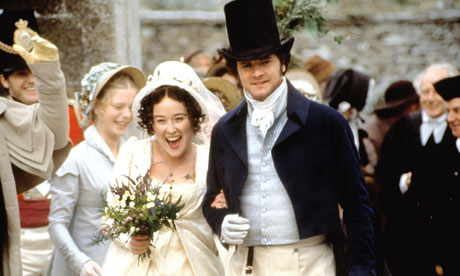
Good lord above! If this is really true then I dread to think what havoc is wreaked by people who've just finished reading A Clockwork Orange; what unrealistic expectations of romance are held by fans of Jane Austen; what heights of passion are reached by Wuthering Heights aficionados on a daily basis. Because, according to a new study from researchers at Ohio State University, "when you 'lose yourself' inside the world of a fictional character while reading a story, you may actually end up changing your own behaviour and thoughts to match that of the character".
Just published in the Journal of Personality and Social Psychology, the study gave undergraduates various stories to read and observed their reactions. In one example, students were given stories about voting, with the result that "people who strongly identified with a fictional character who overcame obstacles to vote were significantly more likely to vote in a real election several days later".
In another, 70 male, heterosexual students were given different versions of a story about a day in the life of another undergraduate. In one, he was revealed to be gay early on; in another, he was outed late in the story; in the third, he was heterosexual. The results? "Those who read the gay-late narrative reported significantly more favourable attitudes toward homosexuals after reading the story than did readers of both the gay-early narrative and the heterosexual narrative. Those who read the gay-late narrative also relied less on stereotypes of homosexuals – they rated the gay character as less feminine and less emotional than did the readers of the gay-early story."
Geoff Kaufman, who led the study, said: "If people identified with the character before they knew he was gay, if they went through experience-taking, they had more positive views – the readers accepted that this character was like them". Perhaps we could hand out some "gay-late narratives" to inhabitants of North Carolina.
But I'm not sure this is hugely earth-shattering news to anyone who loves reading. I've known I tend towards "experience-taking" when I read for ages; when I was younger I even tried to adopt the speech patterns of characters I admired – embarrassingly enough, when it was epic fantasy. The researchers sadly don't go into detail about what might happen if a story is violent, or homophobic, etc – would we still adopt the character's perspectives? Stephen King certainly worried we might, withdrawing his story Rage after the Columbine shootings.
Anyway, I'm fresh from reading Gillian Flynn's terrifyingly good tale of a marriage gone toxic and a wife disappeared, Gone Girl. I'll update you soon enough on the state of my own marriage. And if you don't hear from me, worry.

